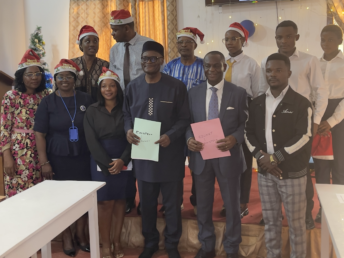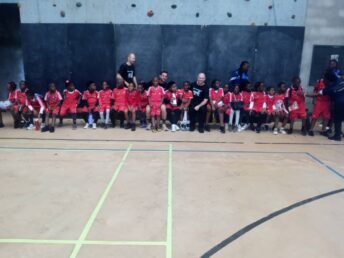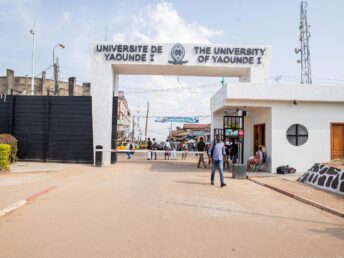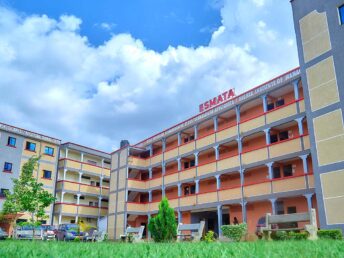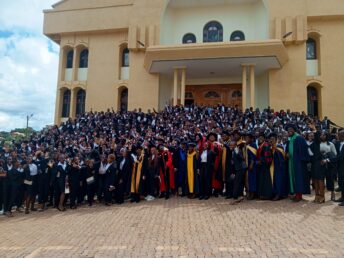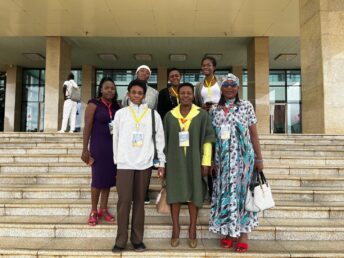Montessori education has long been celebrated for its child-centered, holistic approach. At Akwi Montessori School, Cameroon’s first and foremost Montessori institution, this philosophy comes to life in a nurturing environment designed for independence, curiosity, and real-world growth. In this post, BigManSchools.Com will explore Montessori philosophy, why AMS leads the charge, and the remarkable advantages for toddlers, nursery, and elementary learners—as well as how the school supports parents, teachers, and families.
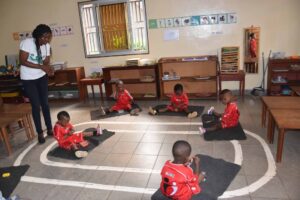
- What Is Montessori Philosophy?
Developed by Dr. Maria Montessori in early 1900s Italy, the Montessori method emphasizes a prepared environment where children guide their own learning. Key tenets include mixed-age classrooms, tactile learning materials, and teachers who observe rather than direct—allowing children to grow intellectually, emotionally, socially, and physically. This approach nurtures curiosity, concentration, self-discipline, and lifelong love of learning.
Read more about the best nursery schools in Cameroon
- Why Akwi Is Cameroon’s First Montessori School

As the pioneer of Montessori education in Cameroon located at Rond point Damas Yaounde, Akwi Montessori School (AMS) brings this global tradition to Yaoundé with dedication and authenticity. Officially the country’s first Montessori school , AMS offers programs tailored to human development cycles—from toddlers to elementary. This distinction has earned recognition across platforms like bigmanschools.com and schoolmapcm.org, further affirming its leadership .
AMS's mission? To provide a “home away from home” where children’s voices matter, integral support is offered to teachers and parents, and students are free to explore and grow in a safe, stimulating setting.
- Montessori Education Benefits by Age Group
Toddlers (2½ – 3 years)
For toddlers, AMS Cameroon builds a nurturing foundation. This phase promotes exploration, secure relationships, and social interaction in a cozy, supportive classroom. Toddlers learn independence through simple tasks—pouring water, tidying up—while nurturing early concentration and self-discovery .
Nursery (3 – 6 years)
Nursery builds on sensors and cognitive skills. Children refine their five senses through hands-on materials, laying the groundwork for reading, writing, math, and more. Montessori education benefits at this stage include improved focus, peer collaboration in mixed-age settings, and a natural love of learning guided by curiosity rather than rote memorization .
Elementary (6 – 12 years)
At elementary age, AMS fosters intellectual independence. Students engage in research, long-term projects, and real-world exploration. This stage promotes reasoning, creativity, critical thinking, and responsibility in a collaborative space monitored by observant, guiding teachers .
- Cultivating Independence & Holistic Growth
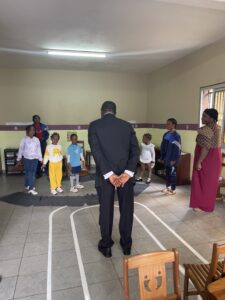
The environment at AMS is purpose-built for self-directed learning and holistic development. Classrooms are rich with accessible materials—ordered, inviting, child-sized, and thoughtfully arranged . Children move freely within structured boundaries, strengthening executive skills, motivation, and focus.
Multi-age classrooms add another layer of enrichment. Younger students learn from their older peers, while older ones build leadership and social-emotional skills—a dynamic well-documented in Montessori education research.
Beyond academics, the model emphasizes real-life skills—tidying, cooking, gardening—helping students become responsible, self-sufficient, emotionally resilient individuals.
- Parent & Teacher Support Initiatives
A standout feature of AMS's model is its comprehensive support for families and educators. Teachers receive ongoing development to master Montessori principles and classroom facilitation. Parents are also integrated into the learning journey, gaining tools to reinforce Montessori practices at home—bridging between school and family.
This partnership strengthens community and ensures consistency—vital to the school’s vision, where home and school exist in perfect harmony.
- Enrollment Details & Call to Action
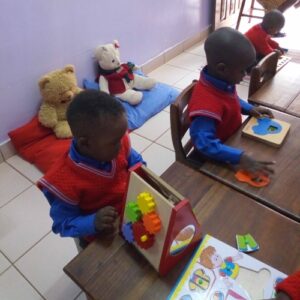
Akwi offers transparent enrollment for three levels: Toddlers (2½), Nursery (3–6), and Elementary (6–12). School hours are 07:15–13:30 for toddlers/nursery and 07:15–15:00 for elementary.
Interested families can pre-register through Akwi’s website, where scheduling information, fees, and contract options are clearly presented.
In investigating the profound Montessori education benefits, it’s clear that Montessori education at Akwi Montessori School Yaounde Cameroon delivers a transformative academic and personal foundation. From encouraging early independence to enriching older students’ curiosity and creativity, this pioneer institution is redefining holistic child development in Cameroon.
If you value a nurturing environment that empowers children intellectually, socially, and emotionally, Akwi Montessori School is the place to be. Visit their website today to schedule a visit and discover how their Montessori approach can shape your child’s future.

